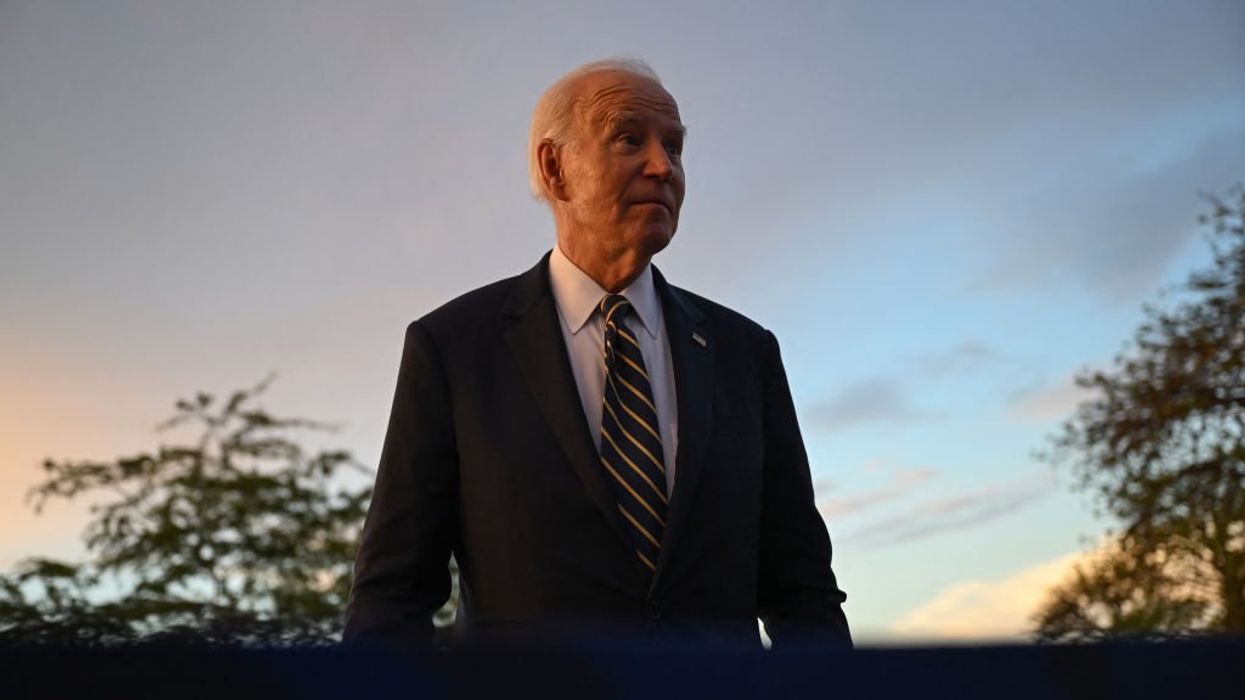
© 2024 Blaze Media LLC. All rights reserved.
10 essential quotes from a classic 1689 title made for (but forgotten in) the age of Obama
August 29, 2014
"Wherever law ends, tyranny begins..."
Today is the birthday of a man who left an indelible imprint on American history and the history of the free world more broadly. The Englishman John Locke was born on August 29, 1632. Locke was one of the most heralded Enlightenment thinkers -- preeminent among classical liberals -- developing theories on natural rights, property, government, not to mention law and philosophy more broadly that would influence the Declaration of Independence, U.S. Constitution and Western civilization itself. His intellectual achievements were so great that Thomas Jefferson identified Locke as one of "the three greatest men who ever lived, without any exception."
In honor of Locke's birthday, below are 10 of the best and most relevant quotes from his essential "Second Treatise of Government," first published in December 1689.
 John Locke. (Image Source: Wikipedia)
John Locke. (Image Source: Wikipedia)
1. Though I have said above...That all men by nature are equal, I cannot be supposed to understand all sorts of equality: age or virtue may give men a just precedency: excellency of parts and merit may place others above the common level: birth may subject some, and alliance or benefits others, to pay an observance to those to whom nature, gratitude, or other respects, may have made it due: and yet all this consists with the equality, which all men are in, in respect of jurisdiction or dominion one over another; which was the equality I there spoke of, as proper to the business in hand, being that equal right, that every man hath, to his natural freedom, without being subjected to the will or authority of any other man.
2. The great and chief end, therefore, of men's uniting into commonwealths, and putting themselves under government, is the preservation of their property.
3. [W]hoever has the legislative or supreme power of any common-wealth, is bound to govern by established standing laws, promulgated and known to the people, and not by extemporary decrees; by indifferent and upright judges, who are to decide controversies by those laws; and to employ the force of the community at home, only in the execution of such laws, or abroad to prevent or redress foreign injuries, and secure the community from inroads and invasion. And all this to be directed to no other end, but the peace, safety, and public good of the people.
4. Their power [that of the legislature], in the utmost bounds of it, is limited to the public good of the society. It is a power, that hath no other end but preservation, and therefore can never have a right to destroy, enslave, or designedly to impoverish the subjects.
[sharequote align="center"]"Wherever law ends, tyranny begins"[/sharequote]
5. [W]hatever form the common-wealth is under, the ruling power ought to govern by declared and received laws, and not by extemporary dictates and undetermined resolutions: for then mankind will be in a far worse condition than in the state of nature, if they shall have armed one, or a few men with the joint power of a multitude, to force them to obey at pleasure the exorbitant and unlimited decrees of their sudden thoughts, or unrestrained, and till that moment unknown wills, without having any measures set down which may guide and justify their actions: for all the power the government has, being only for the good of the society, as it ought not to be arbitrary and at pleasure, so it ought to be exercised by established and promulgated laws; that both the people may know their duty, and be safe and secure within the limits of the law; and the rulers too kept within their bounds, and not be tempted, by the power they have in their hands, to employ it to such purposes, and by such measures, as they would not have known, and own not willingly.
[instory-book ISBN="9780915144860"]
6. Men therefore in society having property, they have such a right to the goods, which by the law of the community are their's, that no body hath a right to take their substance or any part of it from them, without their own consent: without this they have no property at all; for I have truly no property in that, which another can by right take from me, when he pleases, against my consent. Hence it is a mistake to think, that the supreme or legislative power of any common-wealth, can do what it will, and dispose of the estates of the subject arbitrarily, or take any part of them at pleasure.
7. [T]here is danger still, that they [the legislature] will think themselves to have a distinct interest from the rest of the community; and so will be apt to increase their own riches and power, by taking what they think fit from the people: for a man's property is not at all secure, tho' there be good and equitable laws to set the bounds of it between him and his fellow subjects, if he who commands those subjects have power to take from any private man, what part he pleases of his property, and use and dispose of it as he thinks good.
8. ...They [the legislatures] are to govern by promulgated established laws, not to be varied in particular cases, but to have one rule for rich and poor, for the favourite at court, and the country man at plough.
...The legislative neither must nor can transfer the power of making laws to any body else, or place it any where, but where the people have.
9. [F]or wherever the power, that is put in any hands for the government of the people, and the preservation of their properties, is applied to other ends, and made use of to impoverish, harass, or subdue them to the arbitrary and irregular commands of those that have it; there it presently becomes tyranny, whether those that thus use it are one or many.
10. Wherever law ends, tyranny begins, if the law be transgressed to another's harm; and whosoever in authority exceeds the power given him by the law, and makes use of the force he has under his command, to compass that upon the subject, which the law allows not, ceases in that to be a magistrate; and, acting without authority, may be opposed, as any other man, who by force invades the right of another.
Note: The link to the book in this post will give you an option to elect to donate a percentage of the proceeds from the sale to a charity of your choice. Mercury One, the charity founded by TheBlaze’s Glenn Beck, is one of the options. Donations to Mercury One go towards efforts such as disaster relief, support for education, support for Israel and support for veterans and our military. You can read more about Amazon Smile and Mercury One here.
–
Follow Ben Weingarten (@bhweingarten) and TheBlazeBooks on Twitter and Facebook.
You can also find all of our Blaze Books interviews on Soundcloud and Stitcher, and subscribe to our podcast automatically via iTunes.
Want to leave a tip?
We answer to you. Help keep our content free of advertisers and big tech censorship by leaving a tip today.
Want to join the conversation?
Already a subscriber?
more stories
Sign up for the Blaze newsletter
By signing up, you agree to our Privacy Policy and Terms of Use, and agree to receive content that may sometimes include advertisements. You may opt out at any time.
© 2024 Blaze Media LLC. All rights reserved.
Get the stories that matter most delivered directly to your inbox.
By signing up, you agree to our Privacy Policy and Terms of Use, and agree to receive content that may sometimes include advertisements. You may opt out at any time.


